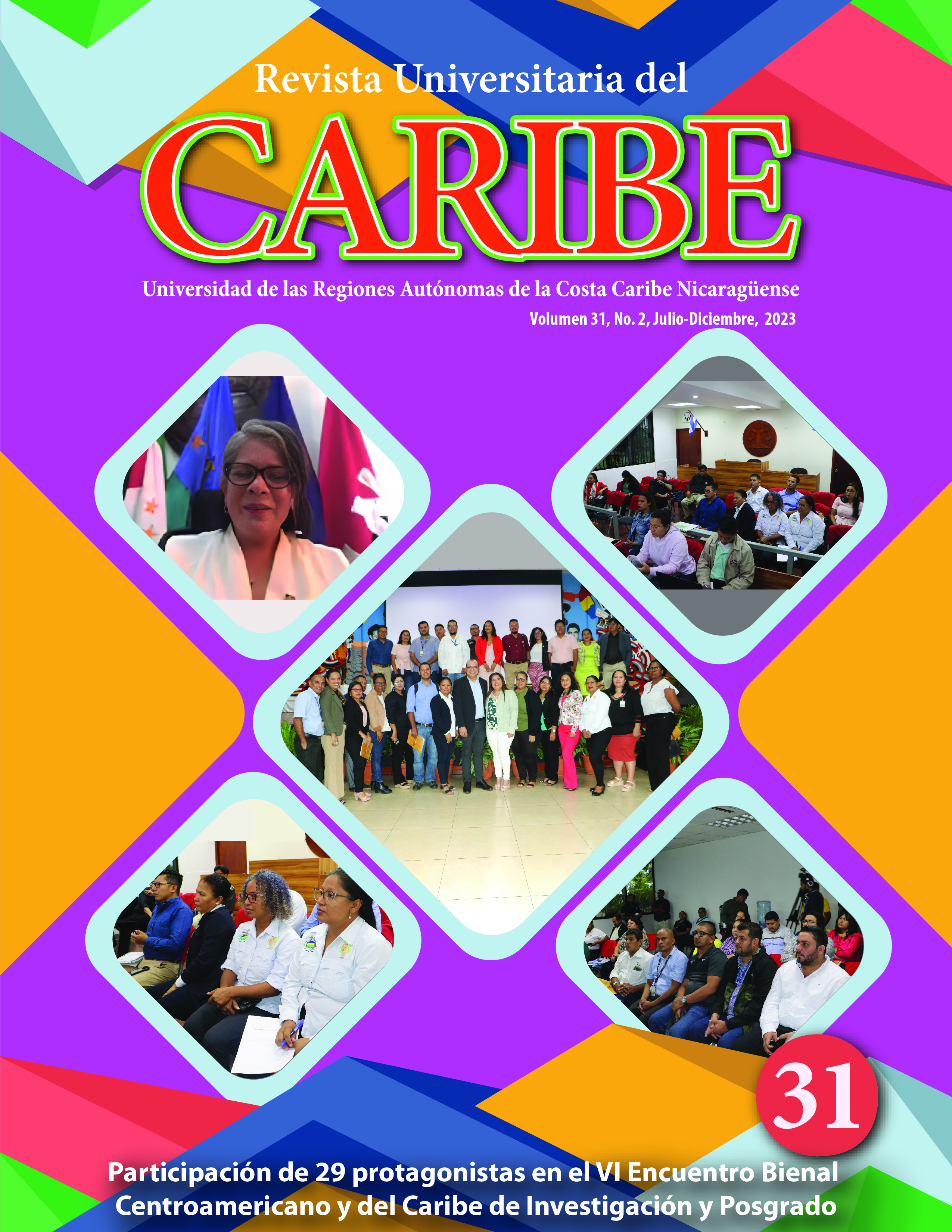Socioeconomic benefits of a collective urban transportation system in Bilwi, Puerto Cabezas
DOI:
https://doi.org/10.5377/ruc.v31i2.17950Keywords:
Monetary savings, socioeconomic benefits, sociodemographic indicators, collective urban transportation, potential usersAbstract
The objective of this article is to contribute to the justification of the investment in a bus transportation system in the city of Bilwi, by estimating the potential user demand and the socioeconomic benefits for the local population. Additionally, it should be noted that Bilwi lacked a collective urban transportation service, making it the only departmental or regional capital in Nicaragua without one. At the same time, there were no previous investigations or studies on the topic. The main theoretical elements that guided this research came fundamentally from the literature on project formulation and evaluation and, also, from demographics. The research had a mixed approach with predominantly quantitative, descriptive type; While the temporal delimitation corresponded to the year 2016, the survey was used, which was applied to 270 families from Bilwi, within the framework of a non-probabilistic or convenience sampling.
As a result, the estimation for average family expenses for taxi transportation stood at C$ 4,248 per month. This amount is a true budgetary tragedy for an important segment of the population and represents 20.4% of the estimated monthly family income of C$20,850. The survey also revealed that potential users of a bus transportation system reached 93.7% of Bilwi families. It can highlight that the main socioeconomic benefit of an urban public transportation system is a potential monetary saving of C$1,350 per month for each family that uses the taxi service. For its part, the annual global savings amounted to 163.9 million cordobas. This increase in family purchasing power could be allocated to a higher level of satisfaction of basic needs and, therefore, to a significant improvement in the living conditions of a high percentage of the local population.
Downloads
180
Downloads
Published
How to Cite
Issue
Section
License
Copyright (c) 2023 Universidad de las Regiones Autónomas de la Costa Caribe Nicaragüense

This work is licensed under a Creative Commons Attribution-NonCommercial-NoDerivatives 4.0 International License.
Propietario de los derechos de autor de los artículos: Los autores guardan los derechos de autor.

Esta revista está bajo una licencia de Creative Commons Reconocimiento-NoComercial-SinObraDerivada 4.0 Internacional. Esta licencia permite que otros puedan descargar las obras y compartirlas con otras personas, siempre que se reconozca su autoría, pero no se pueden cambiar de ninguna manera ni se pueden utilizar comercialmente.

